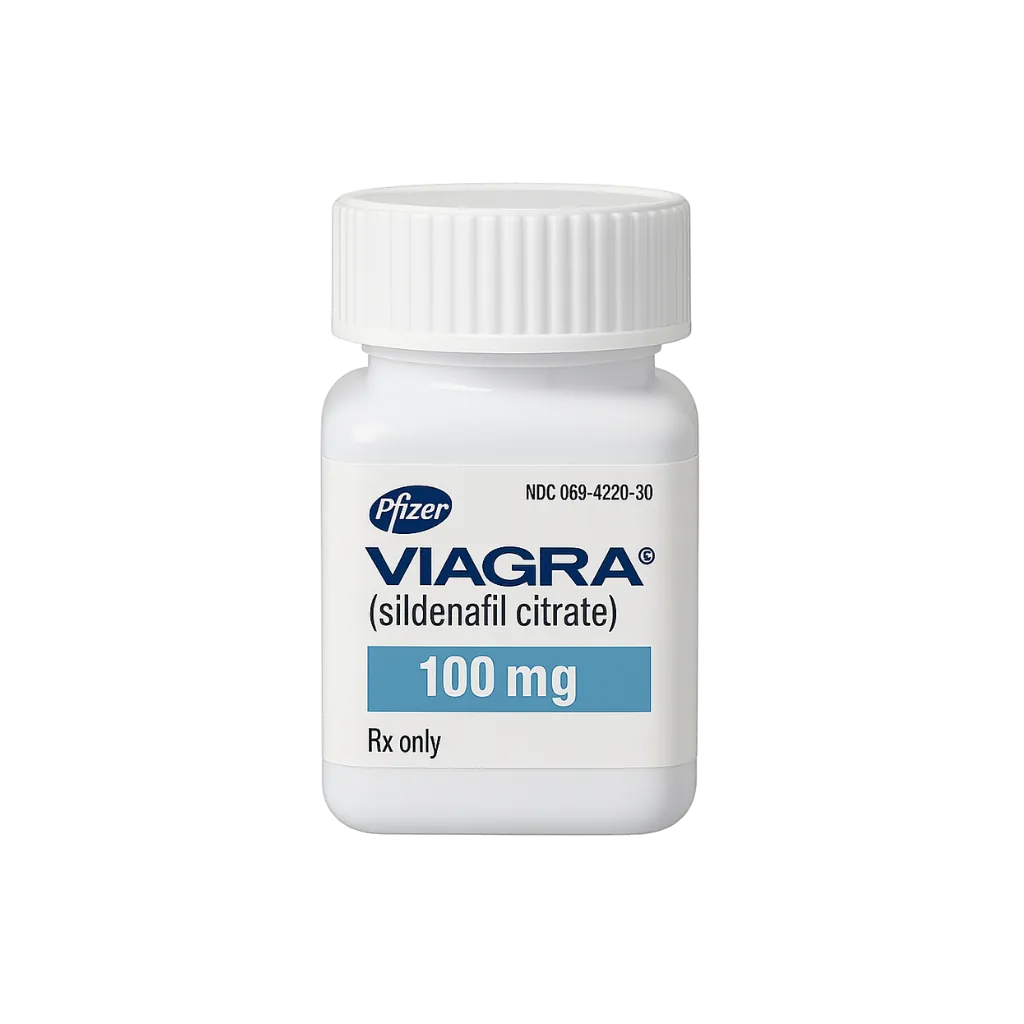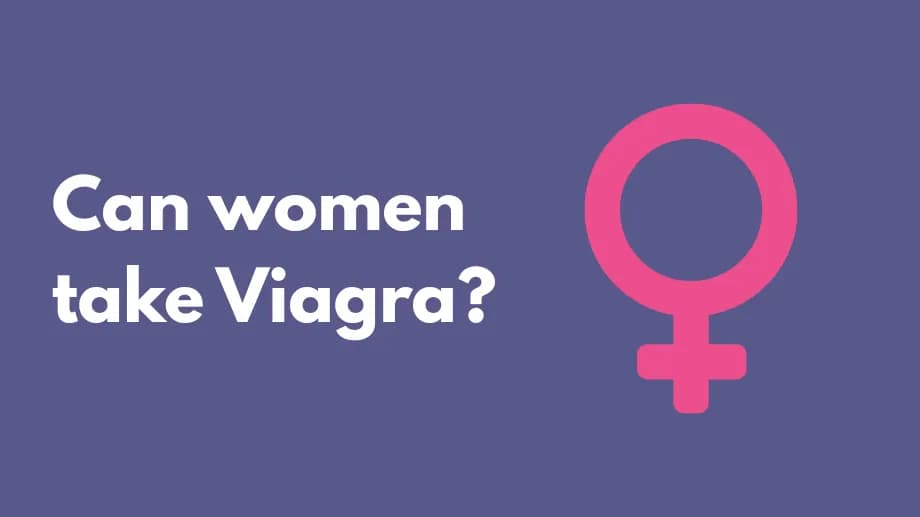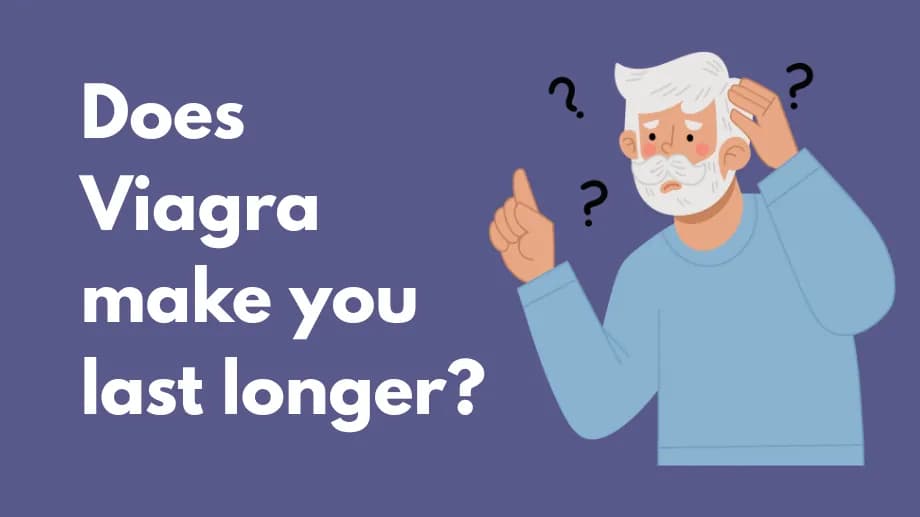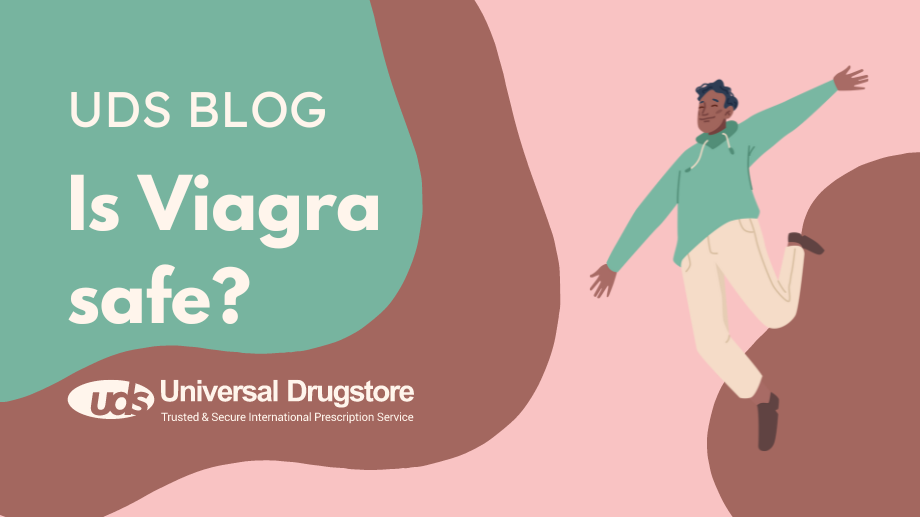Is Viagra safe?
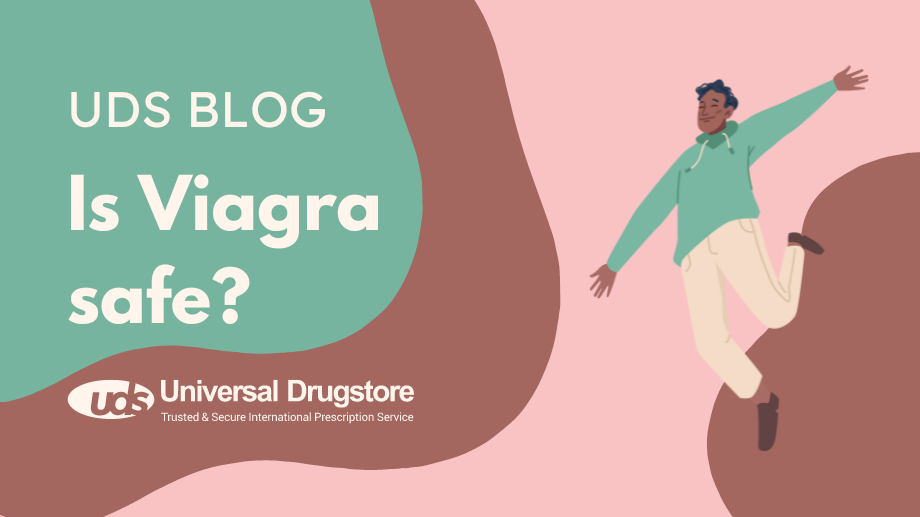
Viagra (sildenafil) has been FDA-approved since the 1990s as a treatment for males with erectile dysfunction (ED). It is generally safe for most people when taken as directed. However, Viagra can be dangerous if you:
- Have certain heart conditions that are considered too risky for sexual activity
- Take medications including nitrates, alpha-blockers, or anti-hypertensives
- Have a history of heart failure, low blood pressure, or irregular heartbeat
- Had a heart attack or stroke in the past six months
- Take more than prescribed
- Take recreational drugs such as poppers
If you are experiencing ED and think Viagra would help you, talk to your healthcare provider. They can determine if Viagra is safe to use and what dose you need.
Read on as we discuss everything you need to know about Viagra by answering some frequently asked questions.
Viagra FAQs
What is Viagra?
Viagra is an oral brand-name ED treatment that is approved by the U.S. Food and Drug Administration (FDA). With ED, you’re unable to have or maintain an erection. Like other treatment options in its class of medications, Viagra only works if you combine it with sexual arousal.
Sometimes, sildenafil is also used to treat a condition called pulmonary arterial hypertension (PAH) under the brand name Revatio. You should not take ED medications such as Viagra if you are currently taking Revatio.
How does Viagra work?
The active ingredient in Viagra, sildenafil citrate, is a PDE-5 inhibitor. Phosphodiesterase type 5 (PDE-5) is an enzyme (protein) in your body that breaks down the molecules that normally cause an erection. When it blocks PDE-5, Viagra helps an erection occur by widening your blood vessels to allow more blood flow to your penis. However, Viagra will not work without sexual stimulation. For most people, Viagra works the first time they use it. But for other people, they may need to take it a few times to get the desired effect.
What are the side effects of Viagra?
The most common side effects of Viagra in clinical trials when compared to placebo include:
- Headache
- Flushing
- Indigestion
- Changes in vision or light sensitivity
- Nasal congestion
Some other possible side effects of Viagra may include:
- Back pain
- Dizziness
- Muscle ache
- Nausea
- Rash
Rarely, Viagra may cause serious side effects such as:
Severe, life-threatening allergic reactions with symptoms such as:
- Hives
- Swelling of your face, lips, tongue, or throat
- Trouble breathing
Cardiovascular problems
Sexual activity is not recommended for people with certain heart-related conditions, such as serious heart failure. Therefore, Viagra should not be used. Also, Viagra has not been studied in people who have had recent heart attacks or strokes. If you have a heart condition, ask your healthcare provider whether Viagra is safe to use.
Low blood pressure
Taking Viagra with medications such as alpha-blockers, high blood pressure medications, or Norvir (ritonavir) can cause a severe drop in your blood pressure. Be sure your healthcare provider is aware of all medications you take before starting Viagra. You may need to check your blood pressure regularly if you take Viagra while on these medications. Also, be very careful getting up from a sitting or lying down position since this can make you feel dizzy and more likely to fall.
You should avoid taking Viagra if you are on a nitrate medication such as nitroglycerin or isosorbide dinitrate for chest pain (angina) because the combination can cause your blood pressure to drop suddenly to unsafe levels.
Prolonged or painful erection
Although rare, there are reports of erections lasting longer than 4 hours in some people taking Viagra. If not treated in time, this can lead to permanent damage to your penis. You are at higher risk for these side effects if you have other medical conditions affecting your penis, or if you have leukemia, sickle cell anemia, or multiple myeloma. Seek immediate medical attention if you have an erection that lasts longer than 4 hours or if you experience pain during an erection.
Shop Medications
Vision loss
Sudden loss of vision in one or both eyes while taking Viagra can be a sign of a serious eye problem called non-arteritic anterior ischemic optic neuropathy (NAION). If you suddenly notice blurred vision or other vision changes in one or both eyes, go to the emergency room or call your healthcare provider right away.
Hearing loss
Some people taking Viagra reported experiencing sudden hearing loss. Some people may also have ringing in their ears (tinnitus) or dizziness. Call your healthcare provider or seek immediate medical attention if you notice changes in your hearing in one or both ears.
Disclaimer: These are not all the possible adverse effects of Viagra. You should always seek medical advice from a healthcare professional for any questions or concerns about your medical condition or treatment. You should also read all the patient information, including your Medication Guide that comes with Viagra. You can report side effects to the FDA at 1-800-FDA-1088 or www.fda.gov/medwatch.
Who should avoid Viagra?
You should not take this medication if:
- You have an allergy to sildenafil or any of the inactive ingredients in its formulation.
- Take medications called nitrates (such as nitroglycerin)
- Use street drugs called “poppers” such as amyl nitrate, amyl nitrite, or butyl nitrate
- Take medications called guanylate cyclase stimulators such as Adempas (riociguat)
What does your healthcare provider need to know before taking Viagra?
You should be sure your healthcare provider is aware of all your health conditions as you may need increased monitoring or dose adjustments during treatment. This includes:
- Current or previous heart problems such as an irregular heartbeat, heart attack, chest pain, heart disease, heart failure, or other heart conditions
- Heart surgery within the last 6 months
- Stroke
- Pulmonary hypertension
- High blood pressure or low blood pressure that is not controlled
- An erection lasting longer than 4 hours (priapism)
- Have a deformed penis shape (Peyronie’s disease)
- Blood cell problems such as leukemia, multiple myeloma, or sickle cell anemia
- A rare genetic eye condition called retinitis pigmentosa
- Severe loss of vision
- Bleeding problems
- Stomach ulcers
- Liver problems
- Kidney problems or are on dialysis
Can Viagra be taken with other medications?
When Viagra is taken with other drugs, it can change how they work or make some side effects more likely or severe. You should ask your healthcare provider if any prescription drugs, over-the-counter (OTC) medications, vitamins, or supplements you take cause drug interaction with this medication:
- Viagra can cause a severe drop in blood pressure if taken with nitrates, alpha-blockers, and anti-hypertensives
- CYP3A4 inhibitors such as ketoconazole, ritonavir, erythromycin, or itraconazole can put you at a higher risk of side effects if taken along with Viagra
What is the recommended dose of Viagra?
Your healthcare provider will determine your dose of Viagra based on your medical history, other medications you are taking, and how well you respond to it. For most people, the recommended dose of Viagra is 50 mg as needed, around 1 hour before sexual activity. However, Viagra can be taken anywhere from 30 minutes to 4 hours before you plan on having sex. You can take Viagra with or without food but it works better if it is taken on an empty stomach. If it is taken with food, Viagra may take longer to work, especially if you eat a high-fat meal.
You should not take Viagra more than once a day.
Can Viagra be taken with alcohol?
Some people drink alcohol to feel more relaxed before having sex. And while a drink or two might help get you in the mood, drinking too much can cause erection problems. If you drink regularly, these problems can become more frequent.
If you already suffer from erectile dysfunction, drinking alcohol will not make it any easier to get or maintain an erection. This is because alcohol is a central nervous system (CNS) depressant, which means it can slow down your brain signals.
If you are taking an ED medication like Viagra, alcohol may cause it not to work as well. Drinking alcohol along with Viagra may also worsen side effects such as flushing and headaches. So you should limit your alcohol consumption or avoid it altogether to ensure Viagra works for you.
Is Viagra safe for one-time use?
Yes, Viagra is taken as needed to help you achieve and maintain an erection. It is only recommended to be taken once per day. So if you are planning on having sex more than once throughout the day, you should not take a pill each time. And if you take a dose of Viagra and it does not work for you, you should not take another one.
Related medications
- Cialis (tadalafil)
- Levitra (vardenafil)
- Stendra (avanafil)
- Caverject (alprostadil)
- Caverject Impulse (alprostadil)
Sources
- DailyMed
- Medscape
- Prescriber’s Digital Reference
- National Library of Medicine
- Moore RA, Edwards JE, McQuay HJ. Sildenafil (Viagra) for male erectile dysfunction: a meta-analysis of clinical trial reports. BMC Urol. 2002 May 22;2:6. doi: 10.1186/1471-2490-2-6. PMID: 12049673; PMCID: PMC115867.

